News
A Lesson in Collaboration
October 18, 2019
Every undergraduate at New York Institute of Technology who takes Foundations of Inquiry (FCIQ) is introduced to the fundamentals of critical thinking and research methods used in various academic disciplines, such as history or philosophy. Kate E. O’Hara, Ph.D., associate professor of interdisciplinary studies in NYIT College of Arts and Sciences, recently asked her FCIQ students to examine post-structuralism and Michel Foucault, a French philosopher and historian, who died of HIV/AIDS in 1984. Coincidentally, at the same time, O’Hara learned of a project at the School of Arts, Technology, and Emerging Communication at the University of Texas at Dallas that she knew would be a perfect complement to the classwork.
“The project, AIDS Quilt Block for an Imagined Genealogy of Michel Foucault, was aimed at collaboratively creating a 12-by-12-foot panel for the NAMES Project Foundation [the custodian of The AIDS Memorial Quilt],” said O’Hara. “I use artistic practice as a research method, and I also have expertise in the integration of engaging and high impact practices, so I contacted UT Dallas and shared my interest.” UT Dallas sent 30 12-by-12-inch square quilt cloths.
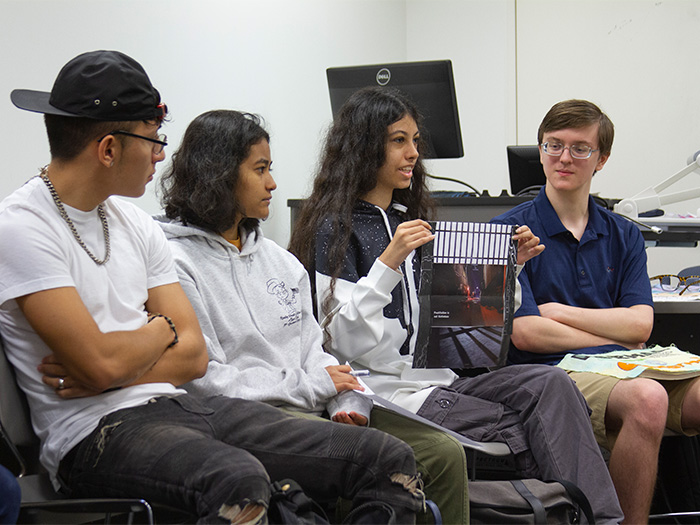
Students in Foundations of Inquiry present their quilt designs during class.
Students in two sections of O’Hara’s FCIQ course designed the quilt squares. They worked individually, in pairs, and in groups. “For their inspiration, I asked that they articulate some aspect of Foucault that they learned in the course. Then I asked that they create a visual representation on the quilt square,” explained O’Hara. “We memorialized and creatively celebrated Foucault.”
When it came to the topic of history, O’Hara invited Ron Goldberg, web content editor at New York Tech, to speak to both classes about the origin of The AIDS Memorial Quilt.
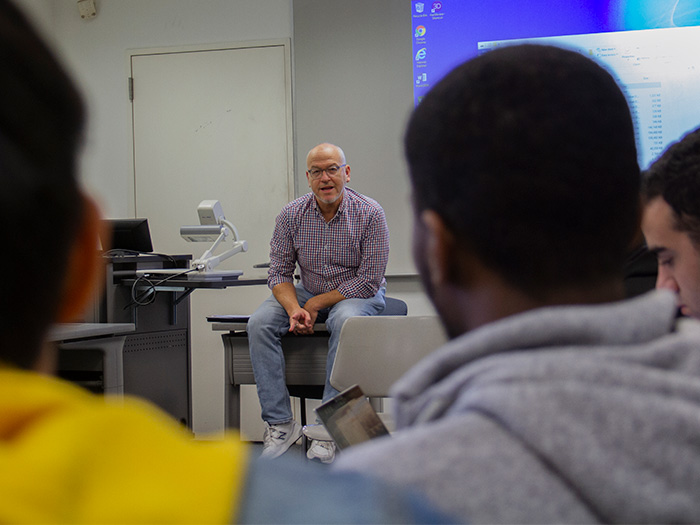
Ron Goldberg speaking to the class about his role with ACT UP and the history of The AIDS Memorial Quilt.
Goldberg is an AIDS historian and was a lead organizer of ACT UP, a non-partisan group of individuals committed to ending the AIDS crisis. “He spoke about the importance the quilt held not only as a political tool but also as an educational tool,” said O’Hara. “He shared his oral history as well as examples of primary documents, material culture, and historical statistics. All terms and concepts our FCIQ students are familiar with. He also shared inspirational stories about his activism. As students who are engaged in FCIQ service learning, they could relate.”
The experience was enlightening on many levels. “[What] I found incredibly exciting was the interconnectedness of it all. Collaborating with another university, sharing knowledge in a non-traditional way, moving beyond our classroom walls, and exposing students to people and resources that are part of the larger New York Tech community,” said O’Hara. “The entire process speaks to the importance of an interdisciplinary course such as Foundations of Inquiry. These are solid opportunities for students to move beyond critical thought in their specialization and in their major to foster their critical and analytical thinking from a variety of perspectives. By doing so, students become creative, collaborative, and innovative problem solvers.”
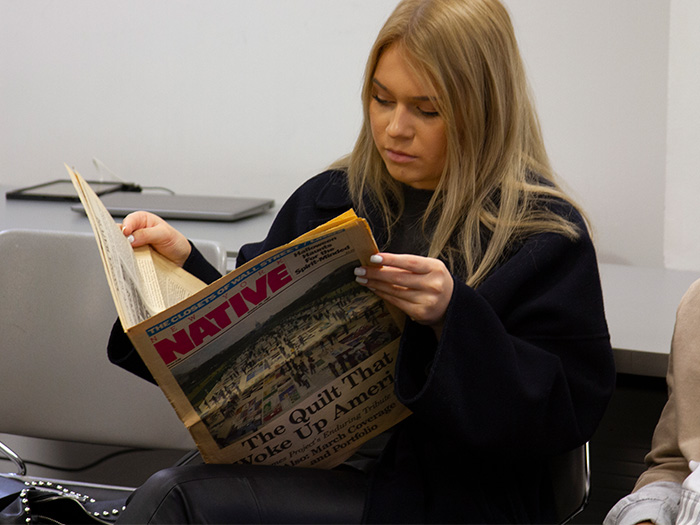
Students looked through examples of documents, material culture, and historical statistics that Ron Goldberg shared with the classes.
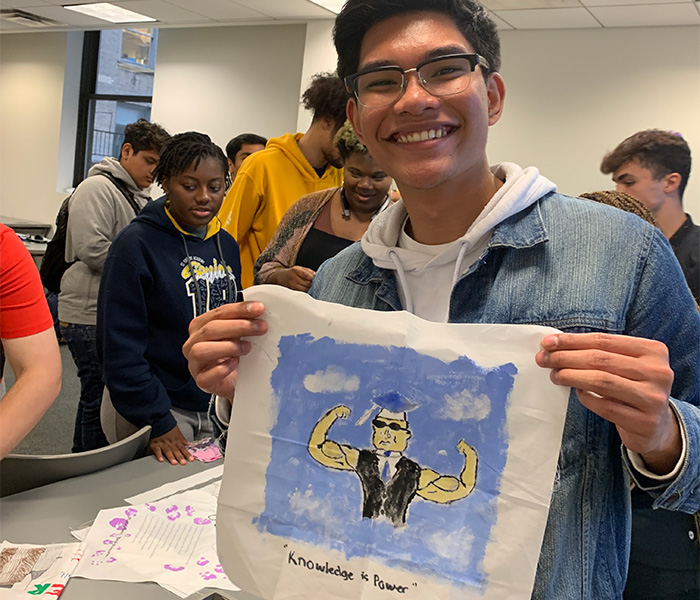
A student shows off one of the quilt squares.
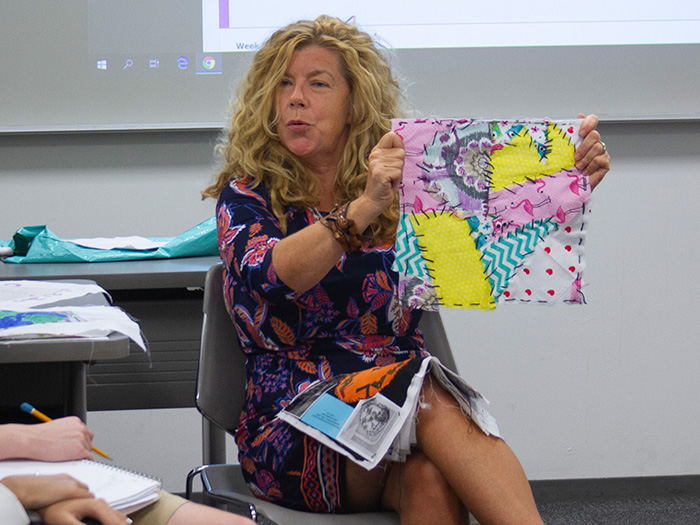
Associate Professor Kate E. O’Hara addresses the students in her Foundations of Inquiry course.
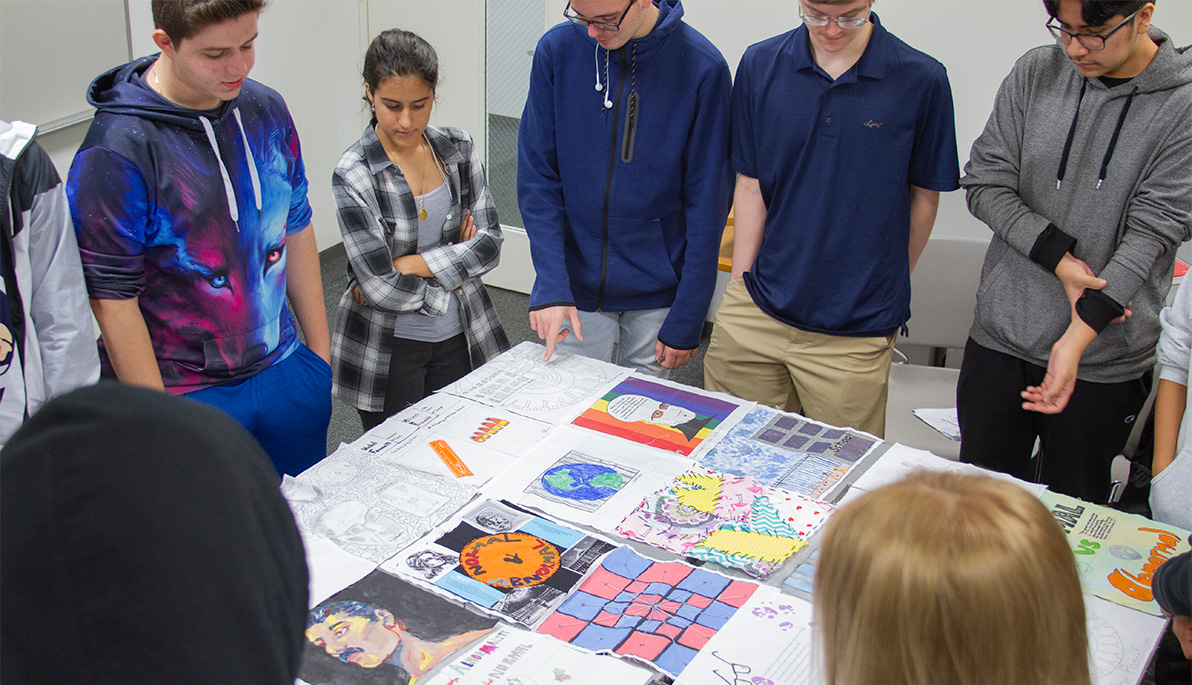
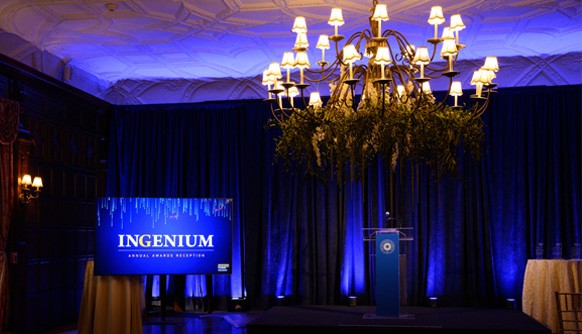
_Thumb.jpg)

